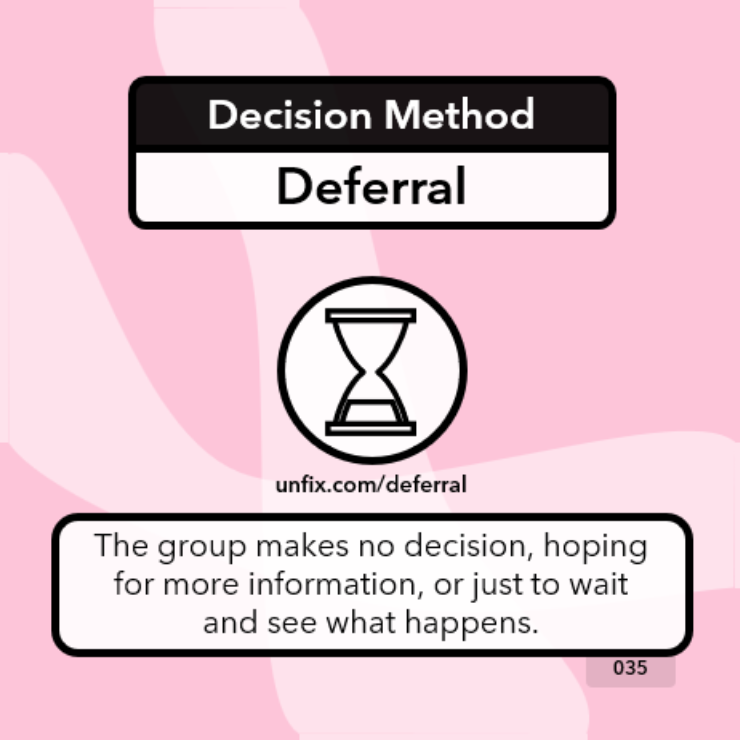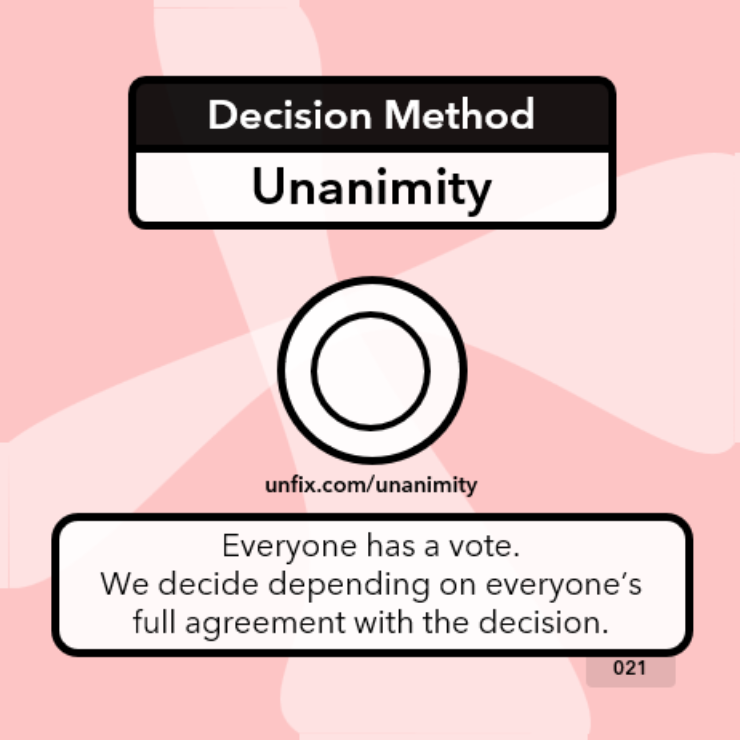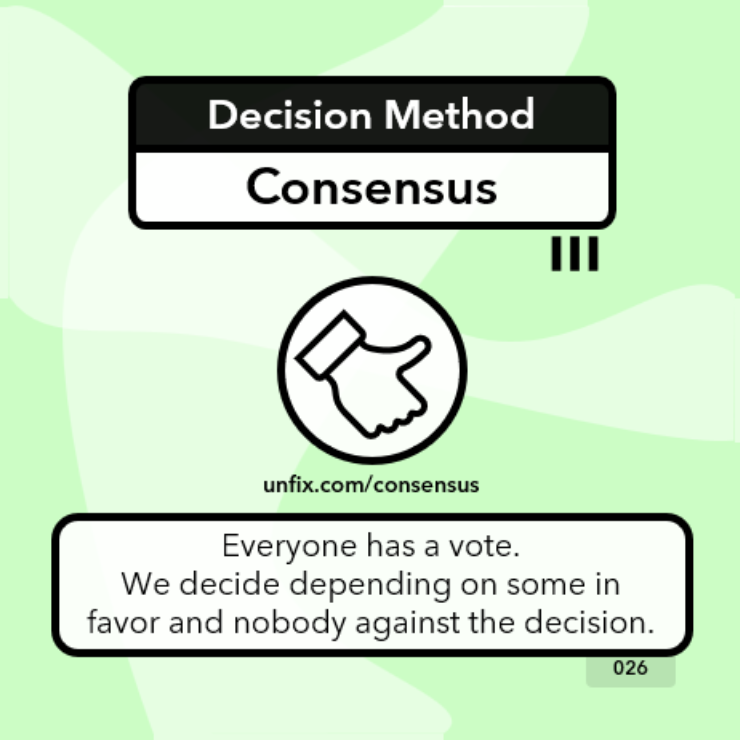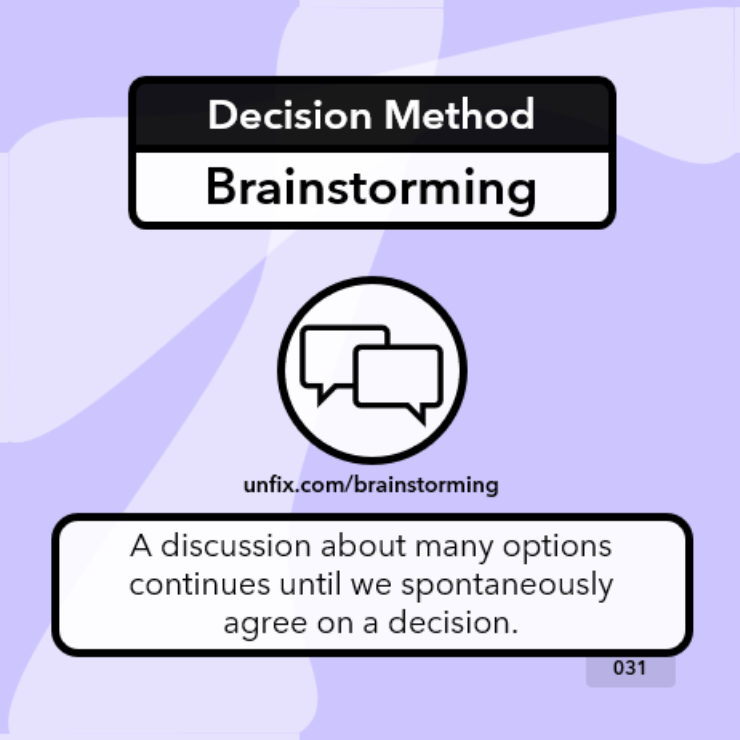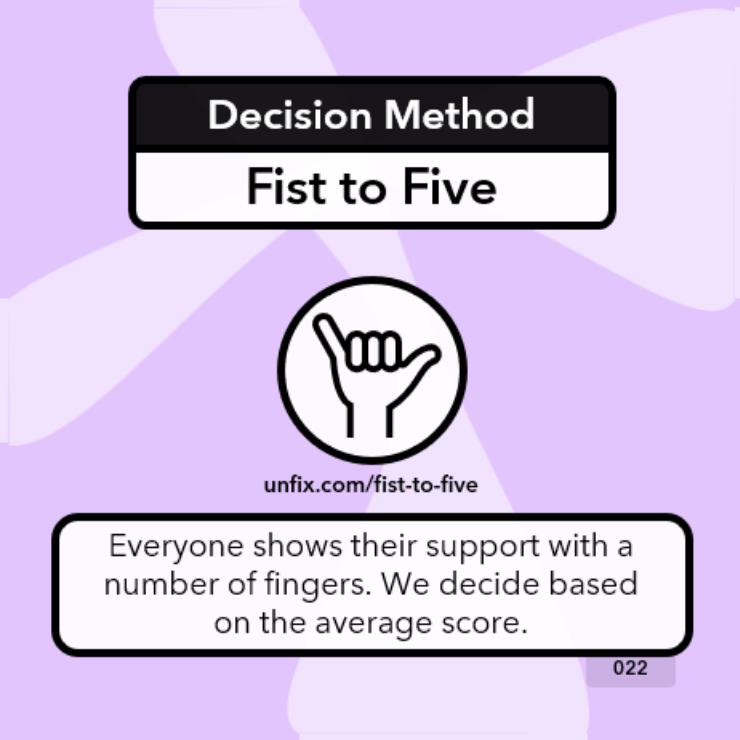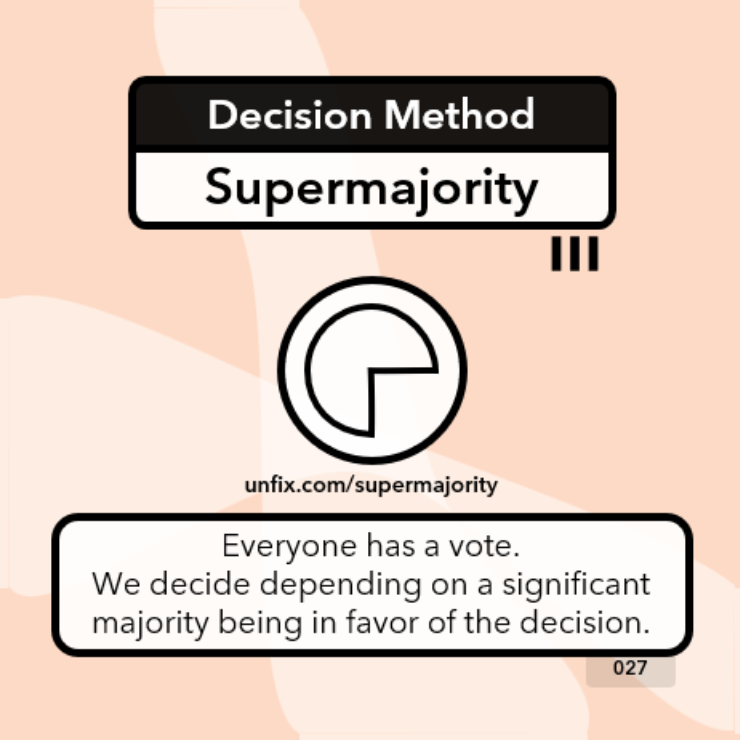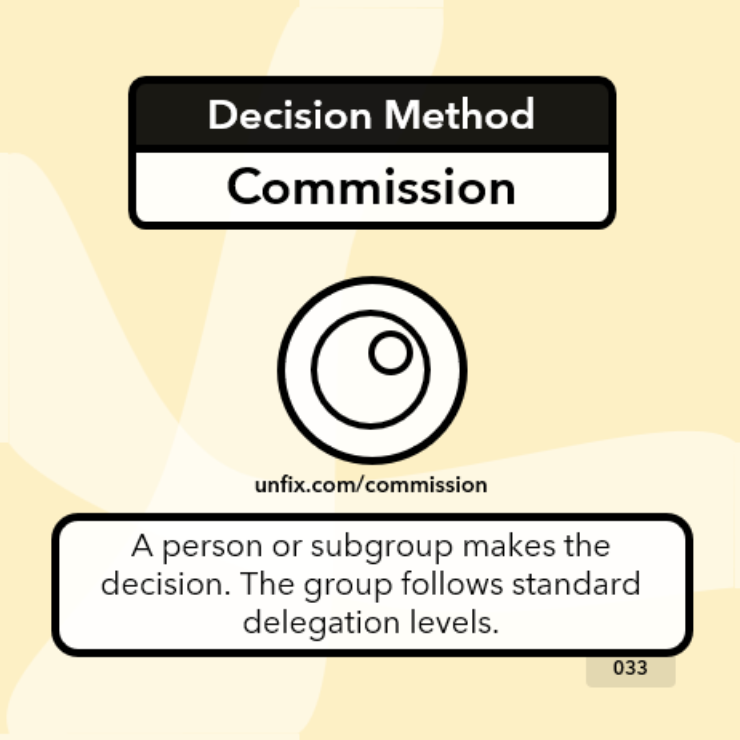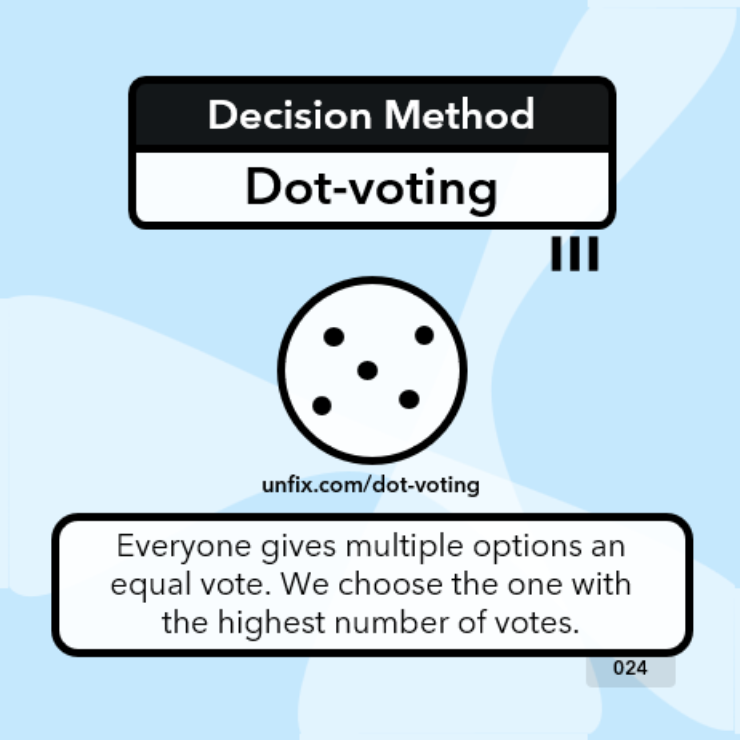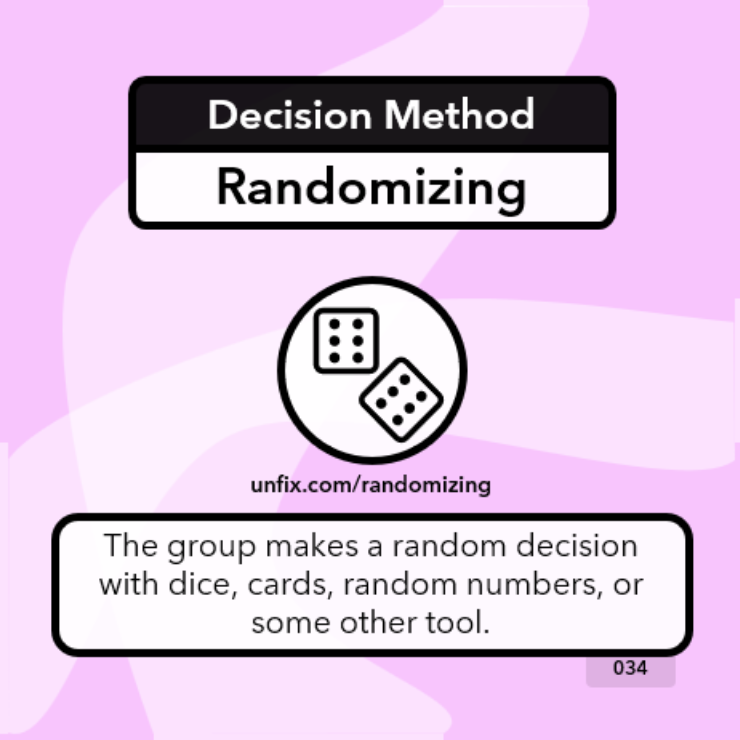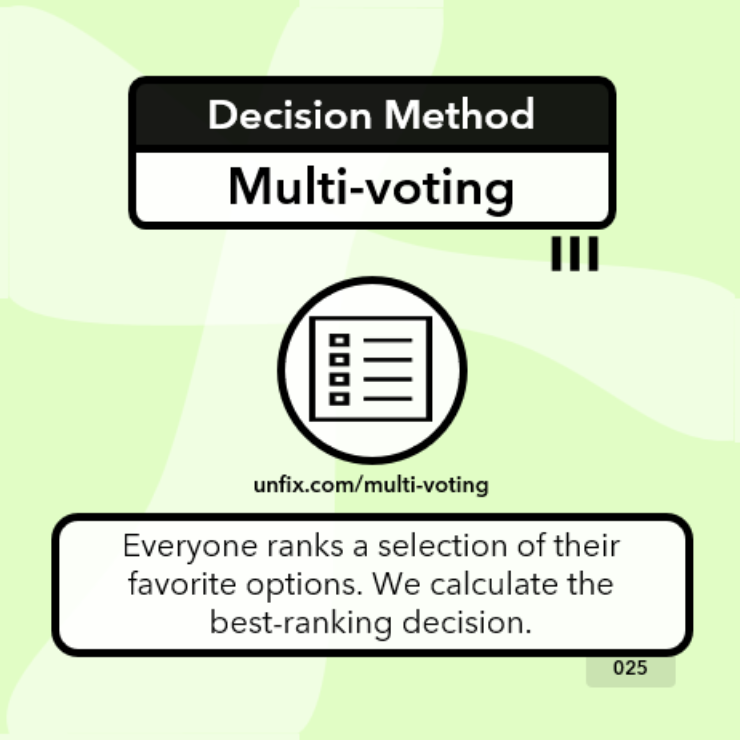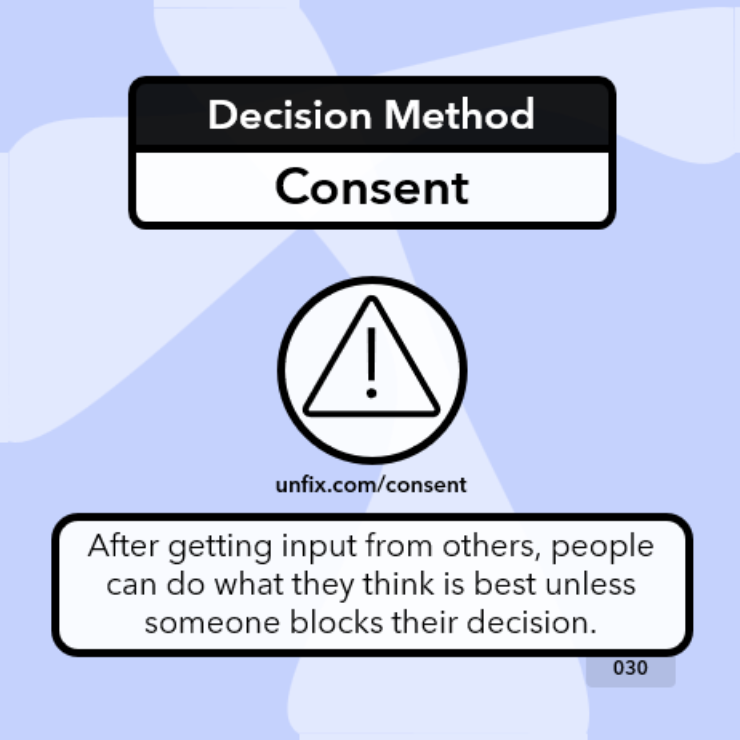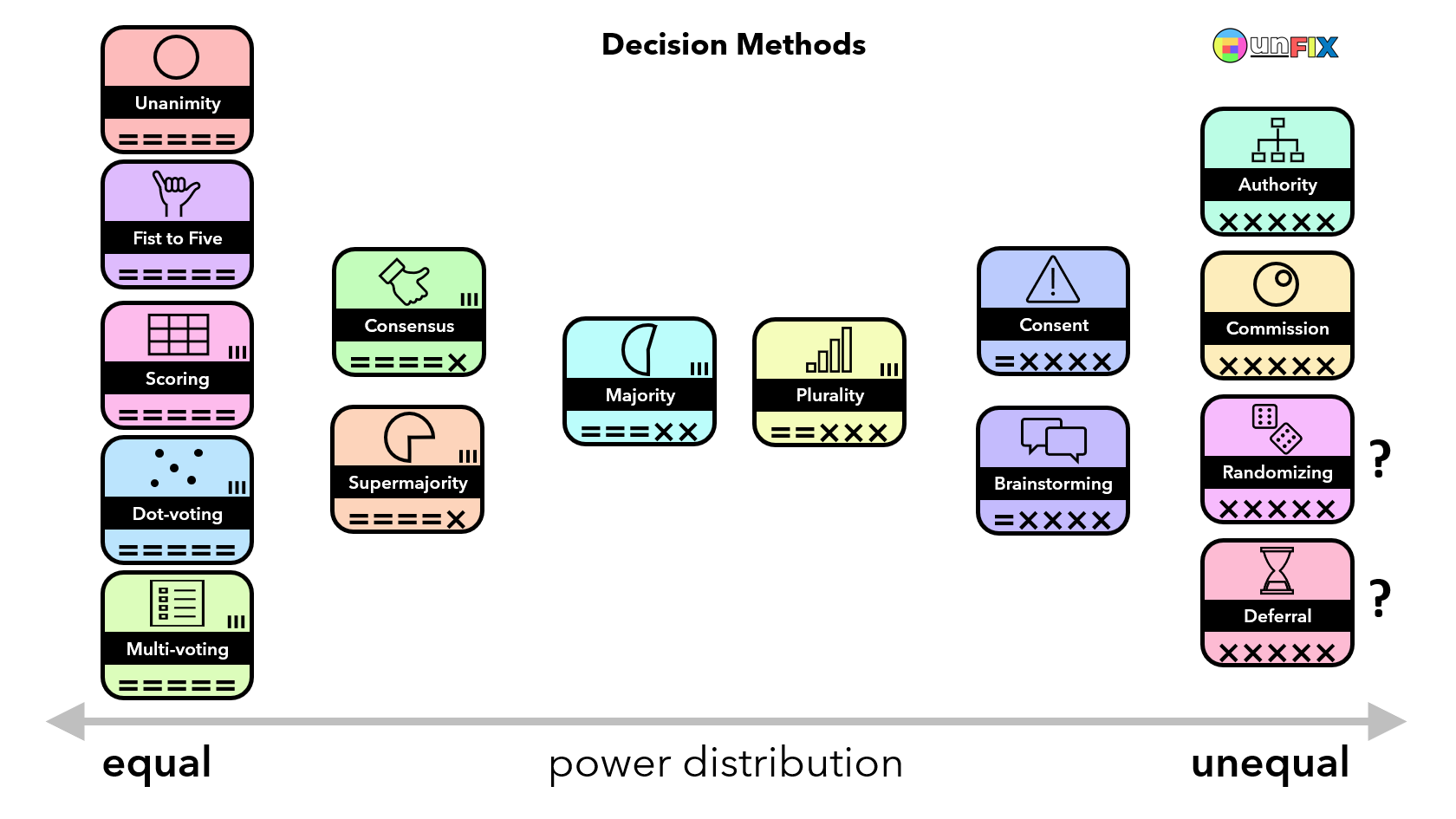
Deferral
Decision Method
Deferral (Postponement) means the group makes no decision, hoping for more information, or just waiting and seeing what happens.
Decision Methods: Unanimity • Fist to Five • Scoring • Dot-Voting • Multi-Voting • Consensus • Supermajority • Majority • Plurality • Consent • Brainstorming • Authority • Commission • Randomizing • Deferral
Purpose
Deferral, also referred to as Postponement, is a decision-making strategy wherein the group consciously chooses not to make an immediate decision. Instead of committing to a particular course of action, the group opts for a delay, either in anticipation of acquiring more relevant information, waiting for changing circumstances, or simply observing the unfolding situation. This approach acknowledges that sometimes the best decision is to make no decision, especially when the available information is insufficient or when the implications of a choice are uncertain. While it might seem passive, deferral can be a strategic move, allowing groups to better position themselves for more informed and effective decisions in the future.
Notes
Deferral can be particularly useful when faced with complex or high-stakes decisions that require careful consideration and deliberation. However, it is essential to establish a clear timeline or criteria for revisiting the deferred decision to prevent indefinite delays or stagnation.
Rules / Constraints
We have not yet defined rules or constraints for this decision method.




“Sometimes you make the right decision, sometimes you make the decision right.”
(Source: Phil McGraw)

